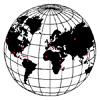money laundering compliance solutions

Canada's anti-money laundering legislation directly impacts on over one million businesses and professionals.
ABCsolutions was established to assist Canadian individuals and organizations to meet the challenge of developing and maintaining an effective anti-money laundering compliance program as mandated under Canada's Proceeds of Crime (Money Laundering) and Terrorist Financing Act.
 Latest News
Latest News
January 26 - The B.C. government alleges 12 Lower Mainland properties worth more than $37 million were used in a sophisticated money laundering operation by an international drug trafficker who has vanished.
The director of civil forfeiture filed lawsuits this month against “associates” of Omid Mashinchi, saying all the properties — including luxury downtown condos and a palatial West Vancouver house — should be handed over to the government for their link to criminal activity.
January 26 - Australia’s property market is a major site for money laundering, and soon real estate agents and others working in the property sector will be key to helping uncover criminal activity in the $12 trillion market.
Property sector players, including real estate agents, conveyancers, buyer’s agents and lawyers nationwide will have to collect information from buyers and sellers during the course of a sale, as part of reforms, due to start on July 1, designed to combat financial crime.
January 26 - Ghana has sent a strong and unequivocal signal to the international community, reaffirming that its resolve to combat money laundering, terrorist financing, and proliferation financing remains firm and irreversible.
Speaking at the opening of the on-site Mutual Evaluation of Ghana’s Anti-Money Laundering, Counter-Terrorist Financing and Counter-Proliferation Financing (AML/CFT/CPF) regime in Accra, the Deputy Minister for Finance, Hon. Thomas Ampem Nyarko, declared that Ghana’s stance on financial crime is rooted not only in global obligations but also in national interest.
January 25 - Online gambling platforms linked to sanctioned guarantee networks have processed over 414 million USDT in revenue in less than two months, with millions flowing directly to major cryptocurrency exchanges.
New data from blockchain intelligence firm Bitrace shows how these operations continue at scale despite recent law enforcement actions against their payment providers.
January 22 - Another former TD Bank employee in the U.S. is pleading guilty for his role in facilitating money laundering.
A former bank employee in New Jersey, Oscar Marcel Nunez-Flores, pled guilty to a two-count information charging him with conspiring to launder monetary instruments and receiving bribes. The charges were brought in connection with his role in enabling a money laundering network to move more than US$26 million from the U.S. to Colombia.





